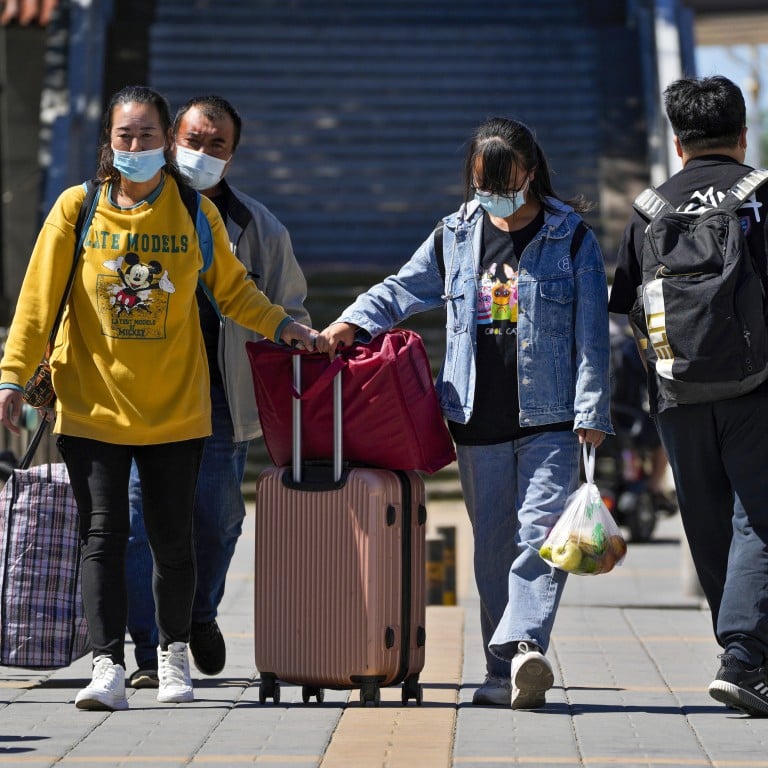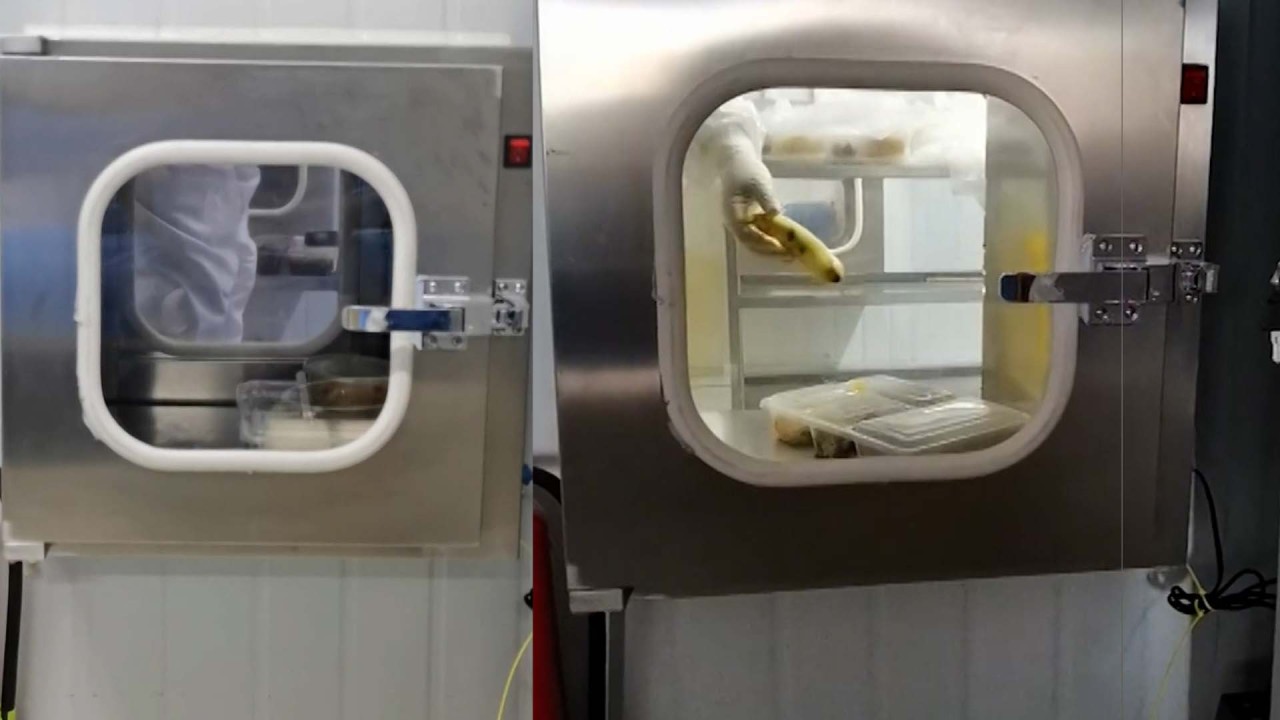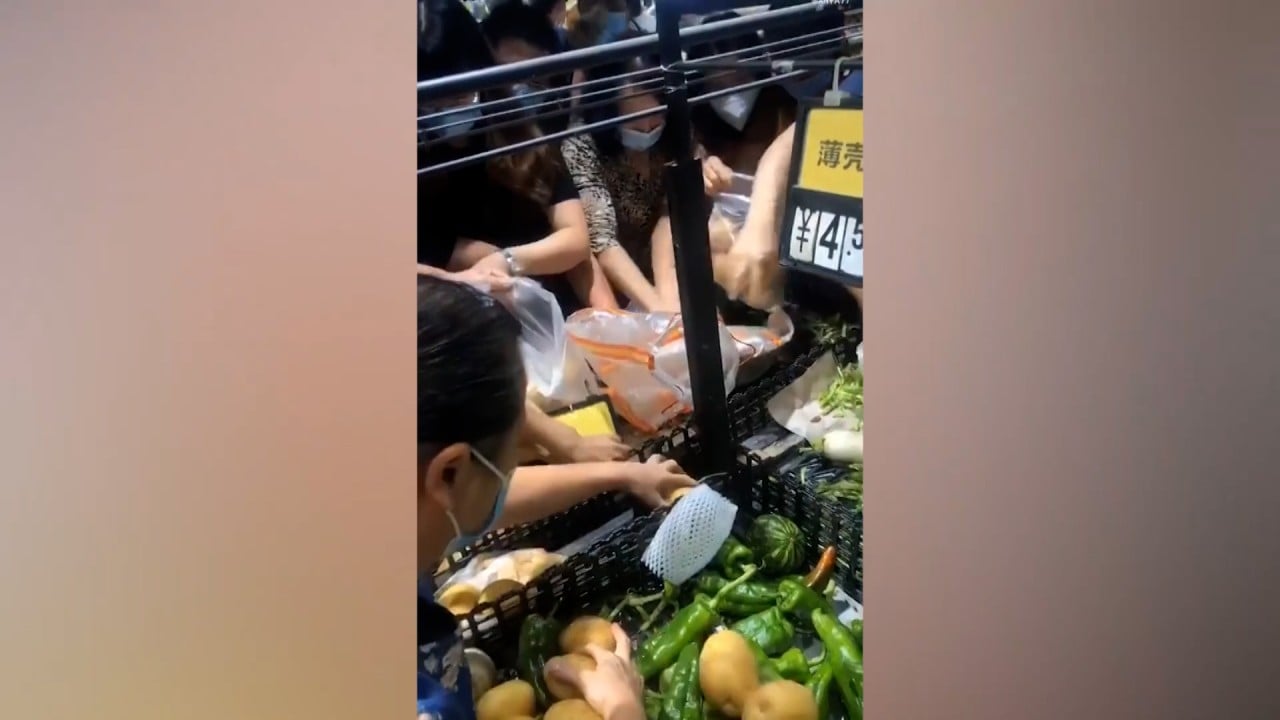
Pandemic travel in China is chaotic – during Mid-Autumn Festival it’s worse
- Far from home, a Wuhan woman braces for a harrowing journey as she tries to get back home for a family reunion
- Covid restrictions in much of China have dashed family reunion hopes for another year
The one-way ticket from Copenhagen to Beijing, with a connection in the Belgian capital Brussels cost her 15,000 yuan (US$2,160) – four to five times the usual pre-pandemic price. Liu, who is fully vaccinated, had to take a total of four PCR tests before she was allowed to board a Hainan Airlines flight from Brussels.
Hainan’s chaos shows the bad, ugly – and scary – of China’s Covid control nexus
The plane actually landed in Xian in the western province of Shaanxi on Sunday, as Beijing shares the load of international passengers with other airports. After spending seven days in a quarantine hotel in Xian, assuming she tests negative, Liu will be sent to a railway station on Sunday, where she will try to catch a train to Wuhan in the central province of Hubei.
The Mid-Autumn Festival falls on Saturday this year.
“I’ll spend the holiday in the quarantine hotel alone,” Liu said. “I’ll have a video call with my parents, joining them for the festive feast online and a toast to their health.”
Liu, who works for a multinational pharmaceutical company, was unable to make the trip in the spring when her mother underwent surgery. Beijing’s zero-Covid policy has severely curtailed travel.
In June, as a first step towards easing its Covid-19 border restrictions, China reduced quarantine time for overseas arrivals to seven days at government-run quarantine facilities, followed by another three days of home isolation. The previous requirement had been 14 days in quarantine and seven days in home isolation.
China’s tussle with zero-Covid goal brings stricter measures for Beijing
That was good news for Liu, but the 39-year-old now has other worries. She does not know if she will be released from the quarantine hotel on Sunday. On top of that, direct flights between Xian and Beijing have been cancelled and the last daily train leaves at 3.14pm.
In Wuhan, there were four confirmed cases being treated in hospitals and 151 asymptomatic cases under medical observation as of Wednesday.
“There are so many uncertainties. I’ll only breathe a sigh of relief when I finally enter the gate of my parents’ home,” Liu said. “I did not expect it to be such a long journey.”
On Thursday the National Health Commission (NHC) urged people to stay put during the holidays to help minimise the spread of the coronavirus. A three-day public holiday for the Mid-Autumn Festival begins on Saturday, while the National Day break runs from October 1 to 7.
China will tighten Covid-19 restrictions on domestic travel from Saturday until the end of October, covering the two public holiday periods and the ruling Communist Party’s national congress next month.
From Saturday, all passengers on planes, trains, and interprovincial buses and ferries must provide negative PCR test results from the previous 48 hours. The NHC has also urged people travelling between provinces and regions to “voluntarily” take PCR tests on arrival.
Xu Zhuoyou, 36, a resident of the southwestern city of Chengdu used to travel long distances to remote areas with friends to enjoy the Mid-Autumn Festival. This year, with the city of 21 million people under lockdown, such trips are out of the question.
“I haven’t had a traditional Mid-Autumn Festival for many years – staying at home, sharing mooncakes after dinner and appreciating a full moon,” she said. “This time, I have no choice but to stay at home with my family.”
In the latest flare-up, Chengdu has logged more than 1,600 Covid-19 infections since August 13, with nearly one-third of cases being asymptomatic. The city has been under a citywide lockdown since September 1, the second of the country’s megacities to impose such orders after Shanghai was locked down for months earlier this year.
The community Xu lives in has no reported cases. Residents can go out to purchase necessities once every two days, and delivery service from a list of government-approved restaurants is available. But the amount and variety of food available on e-commerce platforms has been declining in the past few days, Xu said.
“I bought some meat from an e-commerce platform last night, but did not get any vegetables. They were snapped up,” she said. “I set the alarm at 6am and got up to buy vegetables. Fortunately, I got some. They were sold out in minutes.”
“The most painful part is not knowing when the lockdown will end. I’m already depressed,” she said. “I’ll pray to the moon during the festival. Once I’m released, I’ll immediately travel and immerse myself in nature.”
Zheng Xiwen, 45, an engineer in Beijing, said he wanted to visit his parents in Wuxi in the eastern province of Jiangsu, but gave up because of strict, complicated Covid-19 control measures.
“I wanted to visit them with my nine-year-old daughter. My parents, in their 80s, are losing their sight and have problems walking. I’d like to spend more time with them,” Zheng said.
Some of Zheng’s colleagues who stayed for seven consecutive days in Tianjin, just outside Beijing, were able to enter the capital last month. But since then, 29 of 31 provinces in mainland China, including the municipality of Tianjin, have reported Covid-19 infections, according to the NHC.
“Travelling nowadays is like opening a mystery box. You never know what you’ll get,” said Zheng.



